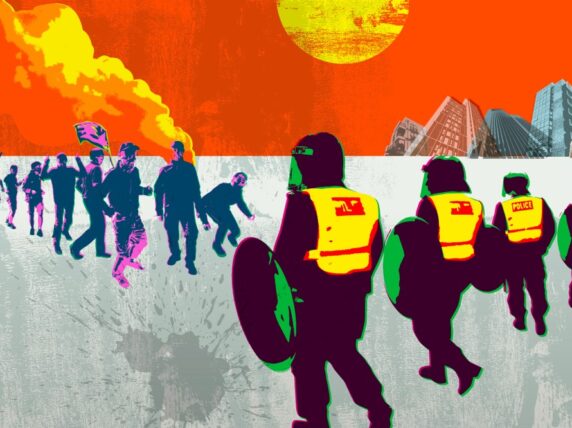Civil society and civic space
A vibrant civic space requires an open, secure and safe environment that is free from all acts of intimidation, harassment and reprisals, whether online or offline.
The United Nations
What we work on
Civil society actors are agents of change. They are critical to building open societies, defending human rights and ending global poverty.
Pressure is increasing on civil society in many countries around the world, including from restrictions on protest rights, internet shutdowns and the detention and harassment of activists.
Civic space is under pressure in the UK and is rated as ‘obstructed’ by the CIVICUS Monitor.
Bond works to promote and protect civic space and strengthen civil society in the UK and globally.
The impact of our work
We collaborate with our members and allies to create an enabling environment for civil society actors so they can campaign for social change and meaningfully participate in public debate and decision making.
We support the sector to understand the possible impact of legislation on INGOs and their work, such as the implications of the National Security Act and campaigning during a general election.
We share collective knowledge by compiling lessons from civil society, for example on campaigning during the Covid-19 pandemic, and producing learning summaries, such as this one on the Police Bill Alliance.
UK civic space: what is happening? 2024-2025
Get the reportUnderstanding electoral campaigning rules
Find out moreThe Police Bill Alliance: learning summary
Find out moreIf you have any questions about our work on civil society and civic space, please get in touch.
Get involved

Join the Civic Space Working Group
This group coordinates and facilitates advocacy on civic space. It is a community where Bond members can share practical learning and advice on working with civil society in places where civic space is under pressure.
Join now
Join the Civil Society Voice Network
An informal network of organisations that works to protect and promote the right to campaign in the UK, acting as a space for sharing information and coordinating collective action.
Join nowNot a member? Join us now.
Find out more about membershipBlogs and resources
We have a wealth of blogs and resources on civic space and regularly host events and webinars on the subject.


